Introduction: The Google Paradox Introduction: The Google ParadoxIntroduction: The Google ParadoxAdd Your Heading Text Here
Google stands as one of the most transformative yet controversial companies of the digital age. While providing invaluable services that have revolutionized how billions access information, the tech giant operates a business model that raises profound questions about privacy, market power, and digital ethics. This comprehensive analysis examines the darker aspects of Google’s empire, drawing from extensive financial data, regulatory cases, and documented evidence of systemic issues within the company’s operations.
1. The Advertising Empire: A Business Built on Data Exploitation
Financial Dependency on Surveillance Capitalism
Google’s financial reality reveals a company overwhelmingly dependent on advertising revenue. In fiscal year 2024, advertising-related income constituted approximately $265 billion, accounting for 76% of the company’s $350 billion total revenue. The primary driver is the “Google Search & Other” segment, which generated $198.08 billion, representing 56.63% of Alphabet’s total revenue.
Key Revenue Breakdown (2024):
- Google Search & Other: $198.08 billion (56.63%)
- YouTube Ads: $36.15 billion (10.33%)
- Google Network: $30.36 billion (8.68%)
- Total Advertising Revenue: $265+ billion (76% of total)
The ARPU Disparity: Extracting Maximum Value
Google’s global monetization strategy reveals stark disparities in how user data is valued across different markets. Analysis shows that a single user in the United States generates approximately 172 times more revenue than a user in India – with US users worth ~$848 annually versus Indian users at ~$5.
This dramatic difference isn’t accidental – it reflects Google’s sophisticated data extraction and targeting capabilities, designed to maximize revenue from higher-value demographics.
Lorem ipsum dolor sit amet, consectetur adipiscing elit. Ut elit tellus, luctus nec ullamcorper mattis, pulvinar dapibus leo.

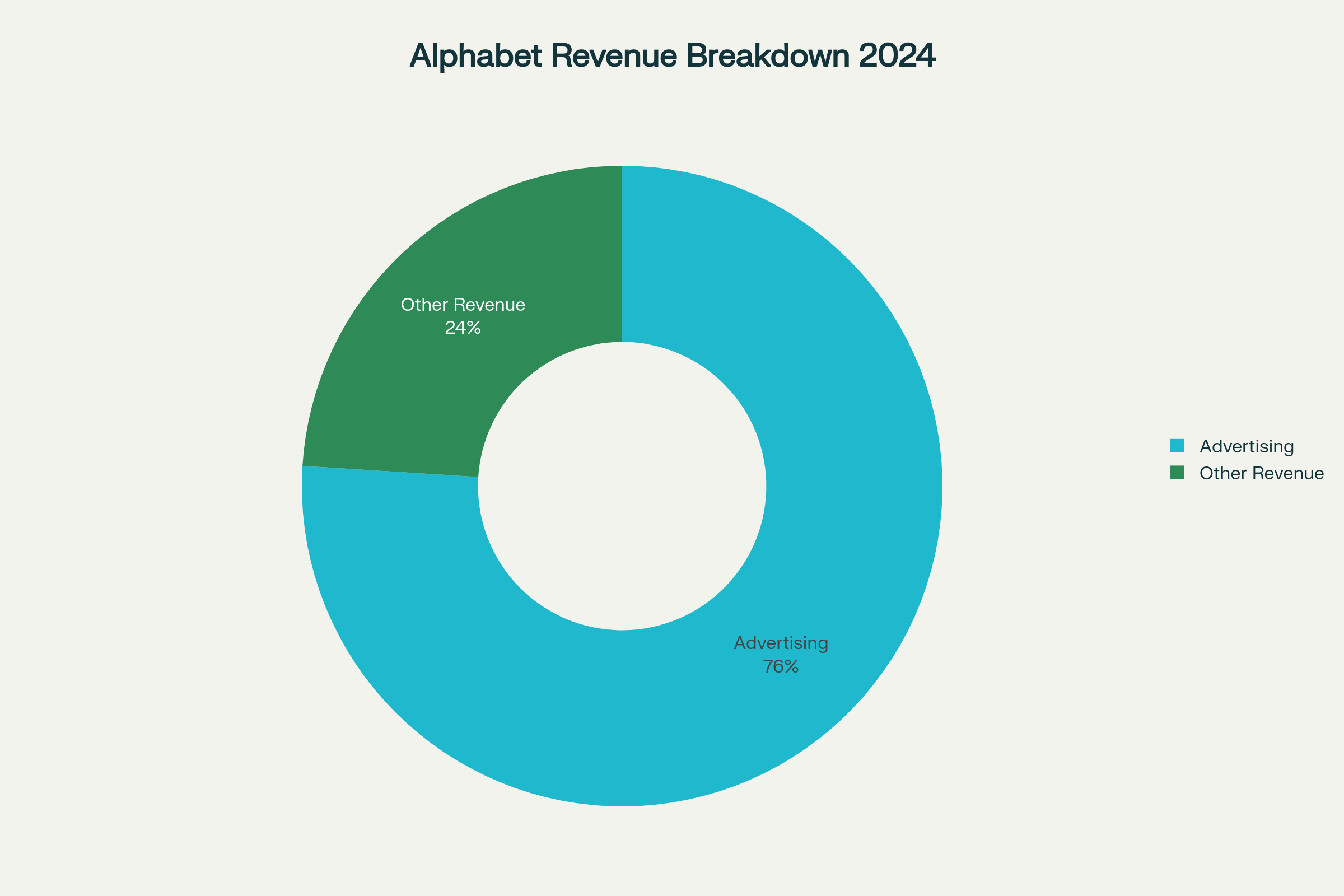
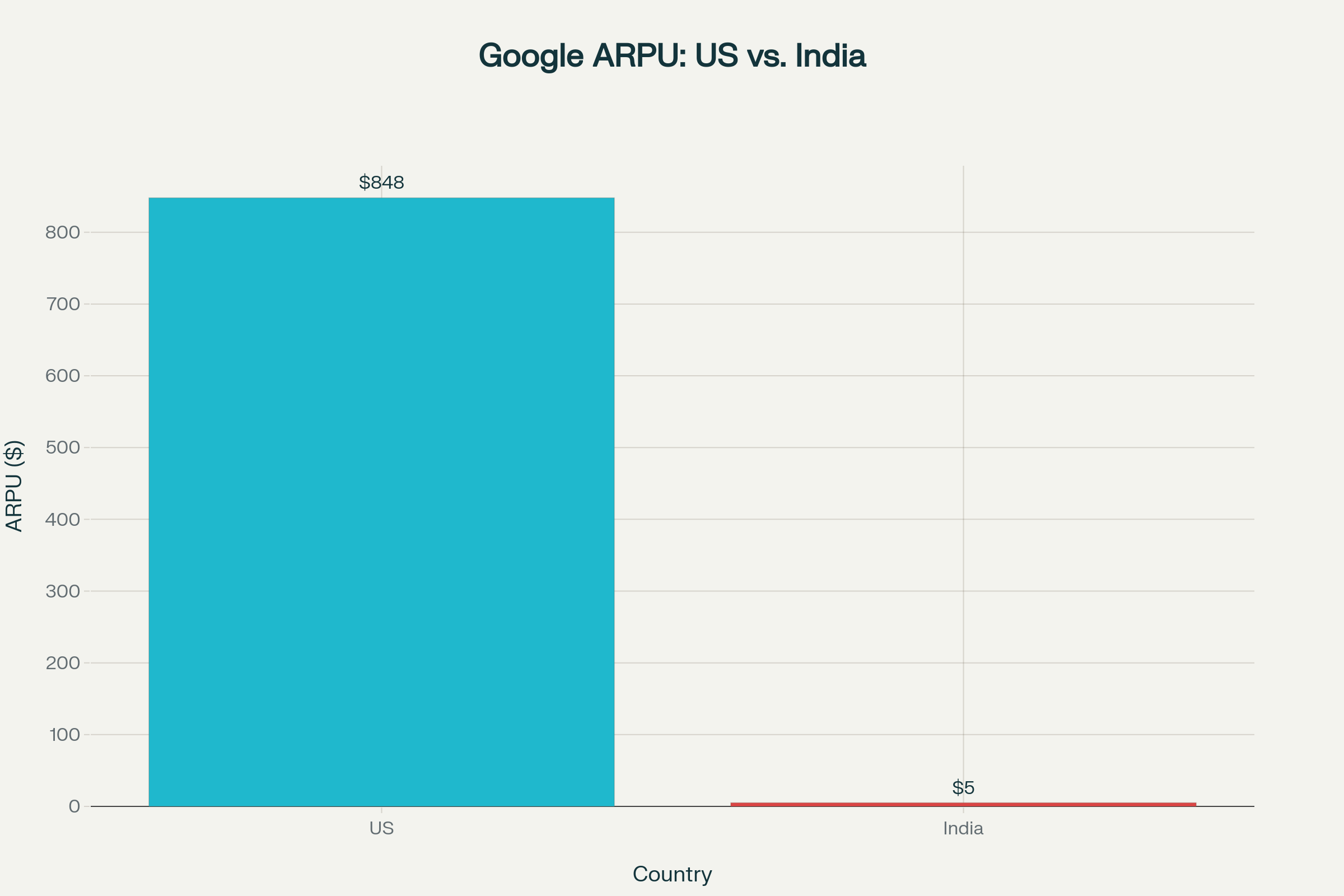
2. Data Profiling and Targeting: The Surveillance Machine
Google’s data collection apparatus operates as a sophisticated surveillance system, capturing user behavior across multiple touchpoints to create detailed behavioral profiles. This process involves systematic tracking of search queries, location data, app usage patterns, and cross-platform activity monitoring.
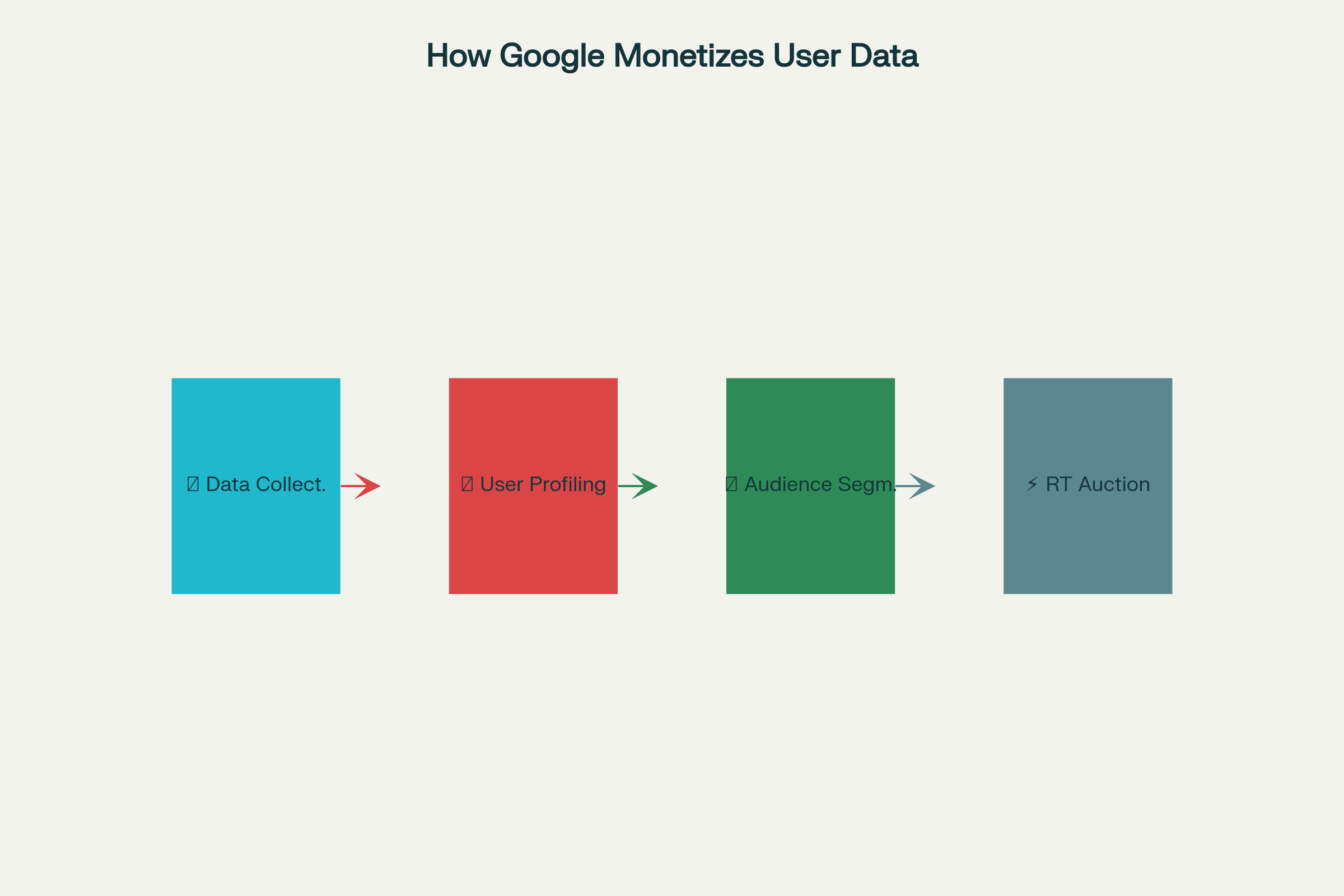
3. Privacy Violations and Regulatory Challenges
Google faces mounting regulatory pressure worldwide as governments recognize the company’s anti-competitive practices and privacy violations. Major regulatory actions have targeted the company’s monopolistic behavior, data handling practices, and market dominance.
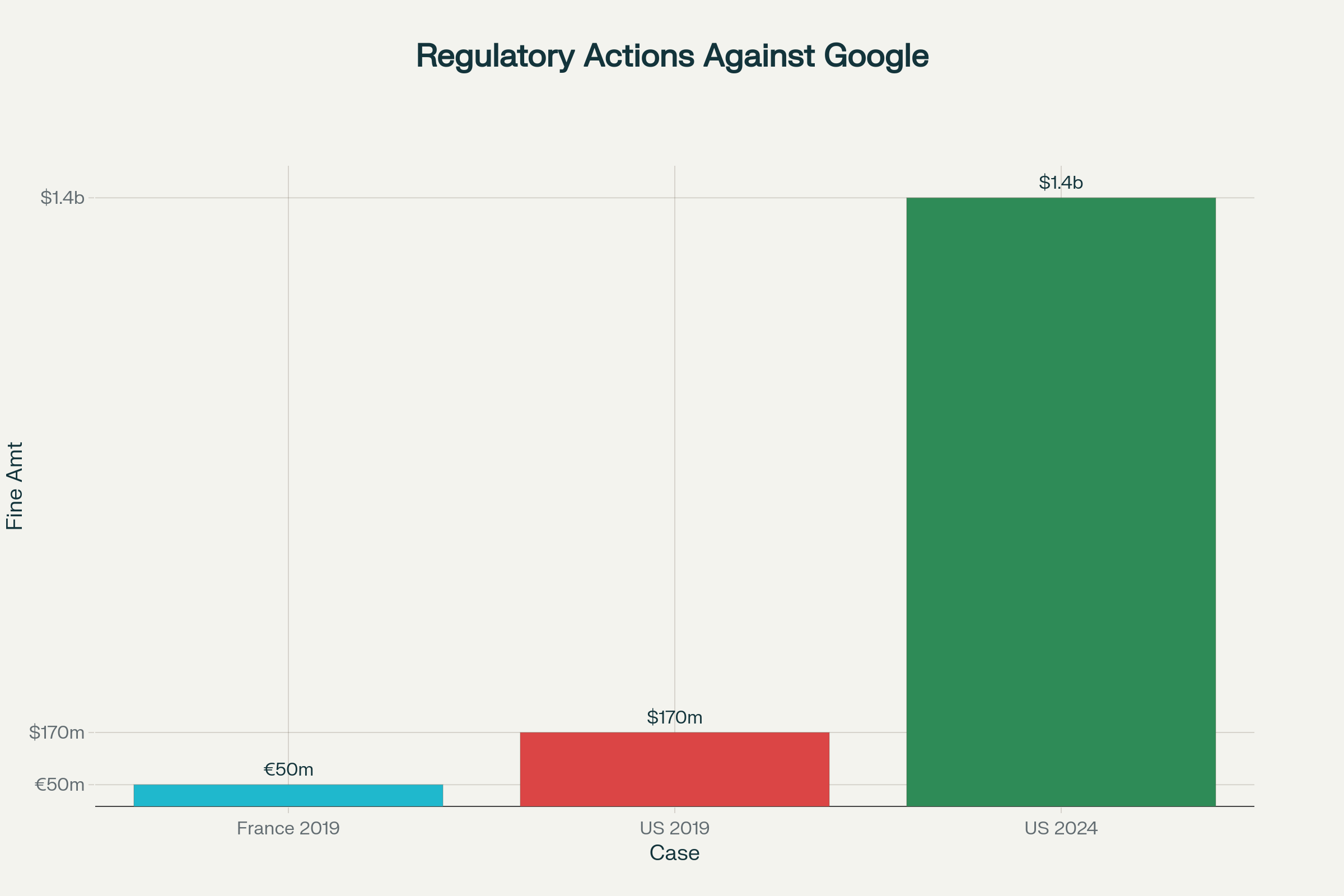
4. Societal Impact: Echo Chambers and Filter Bubbles
Google’s algorithmic systems contribute to information fragmentation and political polarization through personalized content delivery that can create echo chambers and filter bubbles. These algorithmic decisions influence what information billions of users see daily.
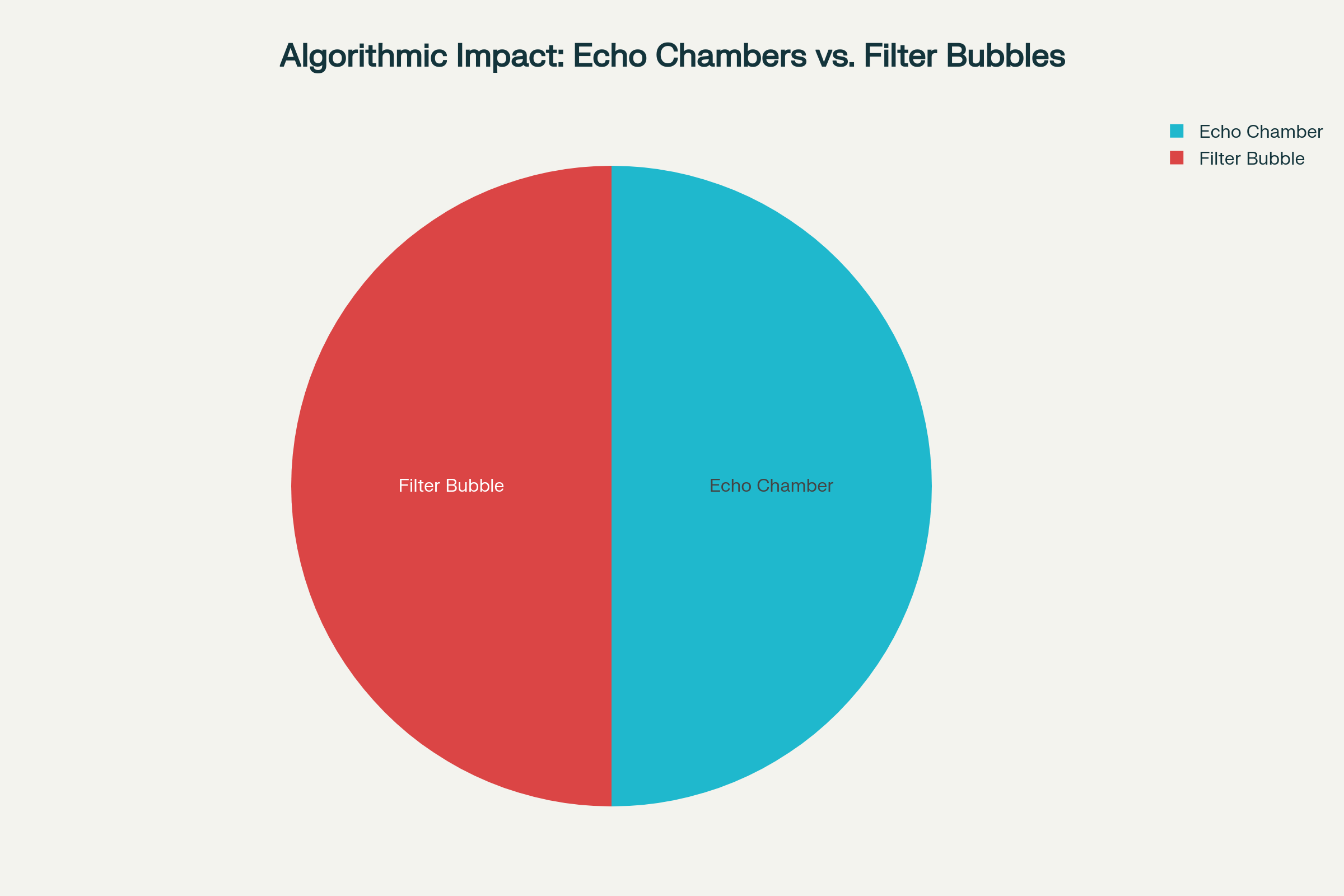
5. The Future: Regulation and Antitrust Action
As regulatory scrutiny intensifies, Google faces unprecedented challenges to its business model. Antitrust actions, privacy regulations, and calls for structural changes threaten to reshape the company’s operations and market position.
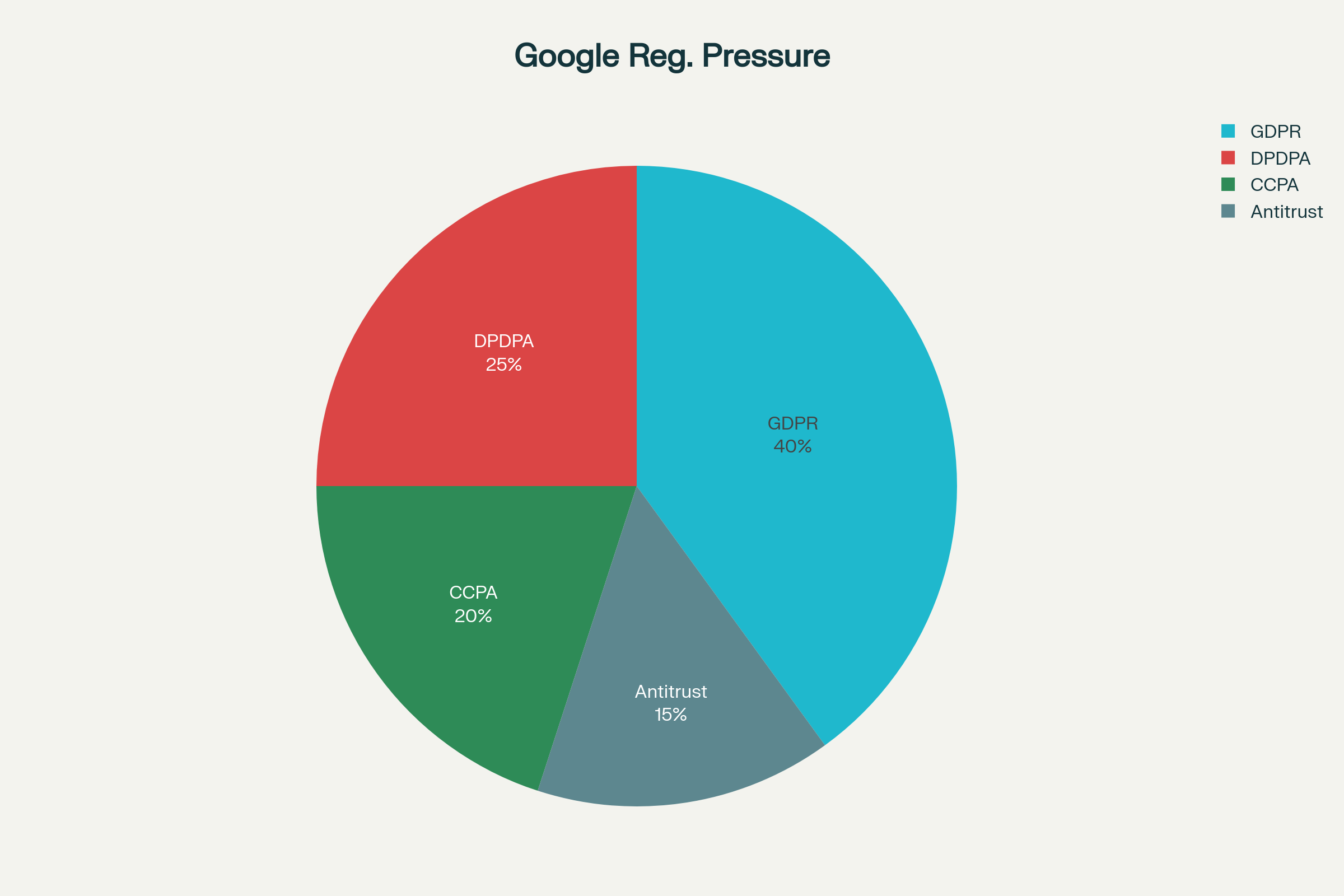
Conclusion
Google’s transformation from a search engine into a data-driven advertising empire represents one of the most significant shifts in modern business. While the company has undoubtedly provided valuable services, the cost has been the systematic erosion of privacy, market competition, and information diversity. As regulatory pressure mounts and public awareness grows, the future of Google’s current business model remains uncertain. The path forward will likely require significant structural changes, greater transparency, and a fundamental reconsideration of how user data is collected, used, and monetized in the digital age.